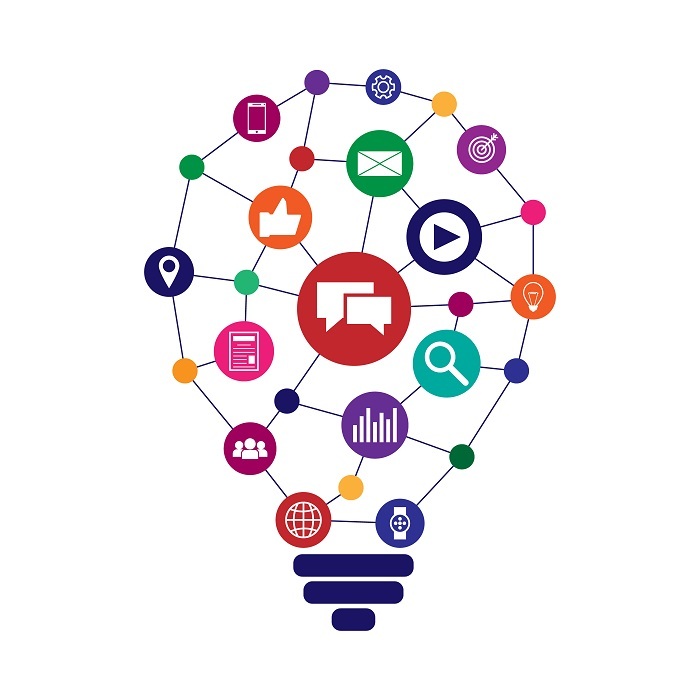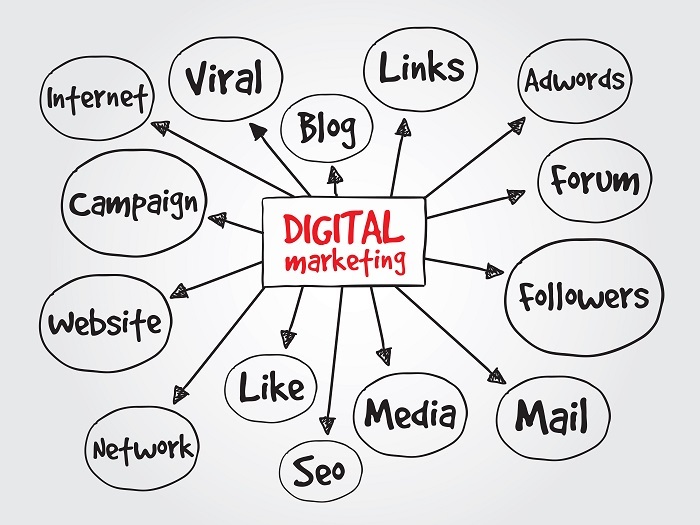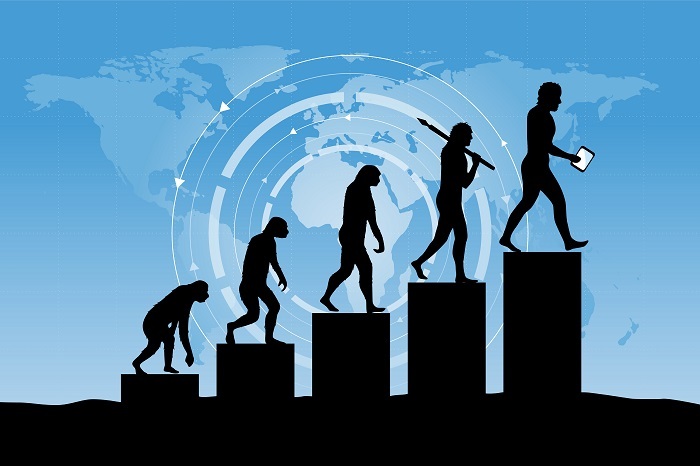
 Data Structure
Data Structure Networking
Networking RDBMS
RDBMS Operating System
Operating System Java
Java MS Excel
MS Excel iOS
iOS HTML
HTML CSS
CSS Android
Android Python
Python C Programming
C Programming C++
C++ C#
C# MongoDB
MongoDB MySQL
MySQL Javascript
Javascript PHP
PHP
- Selected Reading
- UPSC IAS Exams Notes
- Developer's Best Practices
- Questions and Answers
- Effective Resume Writing
- HR Interview Questions
- Computer Glossary
- Who is Who
Advanced Trends in Digital Marketing
Digital marketing is advertising items or services using digital channels such as search engines, social media, email, and websites. Its significance comes from the increasing number of individuals using the internet to research and purchase items or services. Companies may contact these prospective customers through focused and customized campaigns, which can result in increased brand recognition, customer engagement, and conversions (visitors to potential buyers). Furthermore, digital marketing is frequently less expensive than traditional marketing tactics. It produces measurable outcomes, allowing firms to analyze the efficacy of their efforts in real-time and make data-driven choices. Overall, digital marketing is becoming essential for organizations of all kinds to prosper in today's digital world.

The goal of this blog post is to offer an outline of the most recent and advanced digital marketing trends. The blog article will discuss how these trends are transforming the digital marketing environment and how firms can use them to attract, engage, and convert their target audience.
Let's Understand What the Traditional Digital Marketing Techniques Are ?
The term "traditional digital marketing techniques" refers to the early digital marketing strategies that arose with the development of the internet. These methods include
Search Engine Optimisation
Pay-Per-Click Advertisement
Email Marketing
Content Marketing
Social Media Marketing

A Brief Explanation of the above-mentioned traditional methods
Search Engine Optimisation (SEO) ? Search engine optimization (SEO) tends to improve a website's content and structure in order to increase its ranking on search engine results pages. This is done by applying relevant keywords and the creation of high-quality content that drives visitors to the website.
Pay-Per-Click Advertisement ?- PPC advertising is posting paid advertisements on search engine results in pages or other websites. Advertisers pay each time a user clicks on an ad, and the ad is frequently offered to viewers based on certain keywords or interests.
Email Marketing ? Email marketing includes delivering promotional communications to a specific group of email subscribers. This can include newsletters, promotional offers, or other types of material targeted to engage and convert subscribers to potential buyers.
Content Marketing ? The process of developing high-quality, useful material that attracts and engages customers is known as content marketing. This includes blog articles, videos, infographics, and other sorts of material that help organizations identify themselves as an industry thought leaders.
Social Media Marketing ? Social media marketing is the practice of advertising products or services using social media platforms such as Facebook, Twitter, LinkedIn, and Instagram. This involves paid advertising and organic content development to engage and attract peoples that could be potential buyers.

Understanding New Advanced Trends in Digital Marketing
Digital marketing tactics have developed over the years to adapt to technological advancements and changes in customer behavior. Advanced digital marketing strategies are more data-driven, customized, and targeted than previous ones. They rely on emerging technology such as artificial intelligence, machine learning, and chatbots to produce more efficient and successful marketing campaigns. As technology advances, we may hope to see even more complex digital marketing strategies develop in the future. The new trends are mentioned below.
AI and Machine Learning ? In digital marketing, artificial intelligence, and machine learning are used to automate activities, personalize content, and improve campaigns. Machine learning algorithms are used to evaluate data and give insights for more efficient targeting, while AI-powered chatbots are utilized to provide fast customer care.
Interactive Content ? Digital marketing uses interactive material, such as tests, polls, and spreadsheets, to engage consumers and offer a personalized service. Moreover, interactive media can offer insightful information about user preferences and behavior.
Video Marketing ? With the growth of platforms like YouTube and Instagram, video marketing has gotten more and more popular in recent years. To engage and educate viewers, videos may be used to display goods or services, convey a brand's narrative, or offer instructional material.
Influencer Marketing ? Influencer marketing includes collaborating with social media influencers to advertise goods or services. Using reputable sources, enables firms to reach a larger audience and establish credibility.
Artificial Reality (AR) ? To give customers immersive and engaging experiences, augmented reality is employed in digital marketing. In an effort to attract and entertain consumers, AR may be used to exhibit items in a virtual setting or to offer a gamified experience.
Social Commerce ? Social networking platforms and e-commerce are combined in social commerce. Companies may now sell goods directly to consumers on social media sites like Instagram and Facebook, making connecting with potential clients simpler.
Personalization ? Personalization is the process of giving people a customized solution via the use of technology and data. This might include personalized messages, targeted content, and product suggestions. By giving each user a customized experience, personalization may increase conversions and improve user engagement.
In general, companies need to include such online marketing trends in their strategy more and more. Businesses may boost engagement, create brand loyalty, and boost conversions by implementing cutting-edge technology and offering great experiences.

Evolution and Advancement of Traditional Digital Marketing Over Due Time Period
No |
Traditional Digital Marketing |
Advanced Trends in Digital Marketing |
|---|---|---|
| 1 | Search Engine Optimisation (SEO) |
Voice Search Optimisation (VSO) |
2 |
Pay-Per-Click (PPC) |
Programmatic Advertisement |
3 |
Email Marketing |
Marketing Automation |
4 |
Content Marketing |
Interactive Content Marketing |
5 |
Social Media Marketing |
Social Media Influencer Marketing |
Conclusion
The world of digital marketing is constantly changing, with new and cutting-edge trends appearing all the time. Companies have more tools than ever to engage their target audience and foster brand loyalty, including AI and machine learning, interactive features, media advertising, voice commands, influencer marketing, augmented reality, social commerce, and personalization. As we've covered in this blog, these cutting-edge strategies sometimes replace and complement traditional digital marketing strategies. These modern trends support businesses in offering individualized experiences, connecting with customers, and ultimately increasing conversions (from visitors to potential buyers/ customers).
To be competitive in the rapidly evolving digital market, it is crucial for organizations to stay current with the newest trends and technology. Businesses may continue to expand and prosper in the future by adopting these cutting-edge practices into their online marketing plans.

